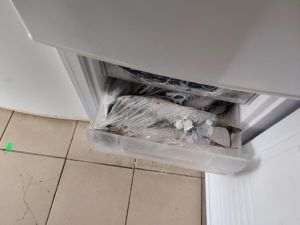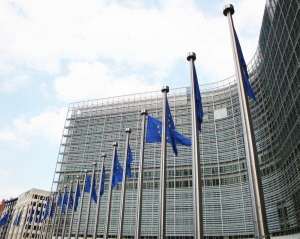Businessman George Copos describes the "bail-in" mechanism (to save banks using the depositors' money) as an experiment that the European Union is conducting on small patients, whose potential (economic) death would not seriously affect the rest of the Union.
The controversial European directive concerning the "bail-in" will directly affect depositors that have over 100,000 Euros in a bank, starting with January 1st, 2015.
"Thinking like a depositor who is of good-faith, who trusts the honesty of the bank, its managerial ability and, most of all, the determination of the EU member states to abide by the additional right of ownership - currently the right of ownership over the money deposited in banks - I am tempted to describe this mechanism as THEFT", the businessman told us in an interview.
Known for being very cautious with his money, George Copos showed he was very documented on the European directive.
"The European governments have serious difficulties with the banking system", he said, and he added: "Some of the institutions are in difficult situations. Efforts are being made to prevent potentially costly bail-out measures. The costs of saving the banks, both during the financial crisis of 2007 - 2009 and during the Euro crisis, which followed, were huge. Data of the European Commission shows that between October 2007 and the end of 2011, the European governments have injected 440 billion Euros (605 billion dollars) into their banks, and have offered guarantees of 1.1 trillion Euros. In order to support its troubled banks, Spain alone has needed 41 billion Euros, which the government was forced to borrow from the European Stability Mechanism.
Solutions are being sought for concerted action, for when banks get into trouble. In November 2014, the European Central Bank will become the sole supervisor of banks in the Eurozone. There are talks of a new institution that may be necessary: a unified mechanism that would apply the rules for the shutdown and restructuring of banks which the Supervisory Board of the ECB deems unviable. For this mechanism to be efficient, 55 billion Euros would be needed.
In this context in Brussels were discussed and adopted decisions on the "bail - in" mechanism, in other words a form of rescue of troubled banks using the depositors' money - it is the mechanism which was applied in the case of Cypriot banks, a (new) experiment which the EU is conducting on small patients, whose potential (economic) death would not seriously affect the rest of the Union".
George also says: "This mechanism is not affecting us (yet), because it will only apply to the countries in the Eurozone, which we are not part of (this time I am saying "luckily"), and to the countries in a projected European Banking Union (which is not working yet)".
According to the businessman, the effects of the "bail - in" mechanism are hard to estimate at the moment: "One of them could come along the lines of thinking of Adam Smith, who said that money is scared, it runs away at the first hint of danger. Therefore, it is possible for this < scared money >, driven by the self-defense instinct, will move to banks located in countries that are not tempted to attack private property, by applying < bail - in > mechanisms.
Or, if the < bail - in > will only apply to deposits over 100,000 Euros, well, no one will have deposits greater than 100,000 Euros! There will be far more deposits of 99,999 Euros".
• "Our banking system is solid"
George Copos considers that the Romanian banking system is solid, mostly due to the governor of the NBR and the National Bank. "As for the European system, it is profoundly affected by what has happened starting in 2007, by the < subprime > crisis, since the bankruptcy of Lehman Brothers and everything that happened afterwards", the businessman said, and he went on to say: "I've been watching what is happening in the Cypriot banking system following the Greek crisis, I've watched how some banks have been nationalized and others have been left to collapse. In short, it is a world that is still in turmoil. I see how the mechanisms of the European Union were unable to save the community from the crisis and they can't help it leave the crisis behind, either.
One result of the tensions in the financial-banking system, is, naturally, the rise of the financing costs and of the difficulties in getting a loan. Especially as in Romania, all the banks, except for two of them, are foreign banks, and are therefore heavily affected by what is happening in parent countries".
























































